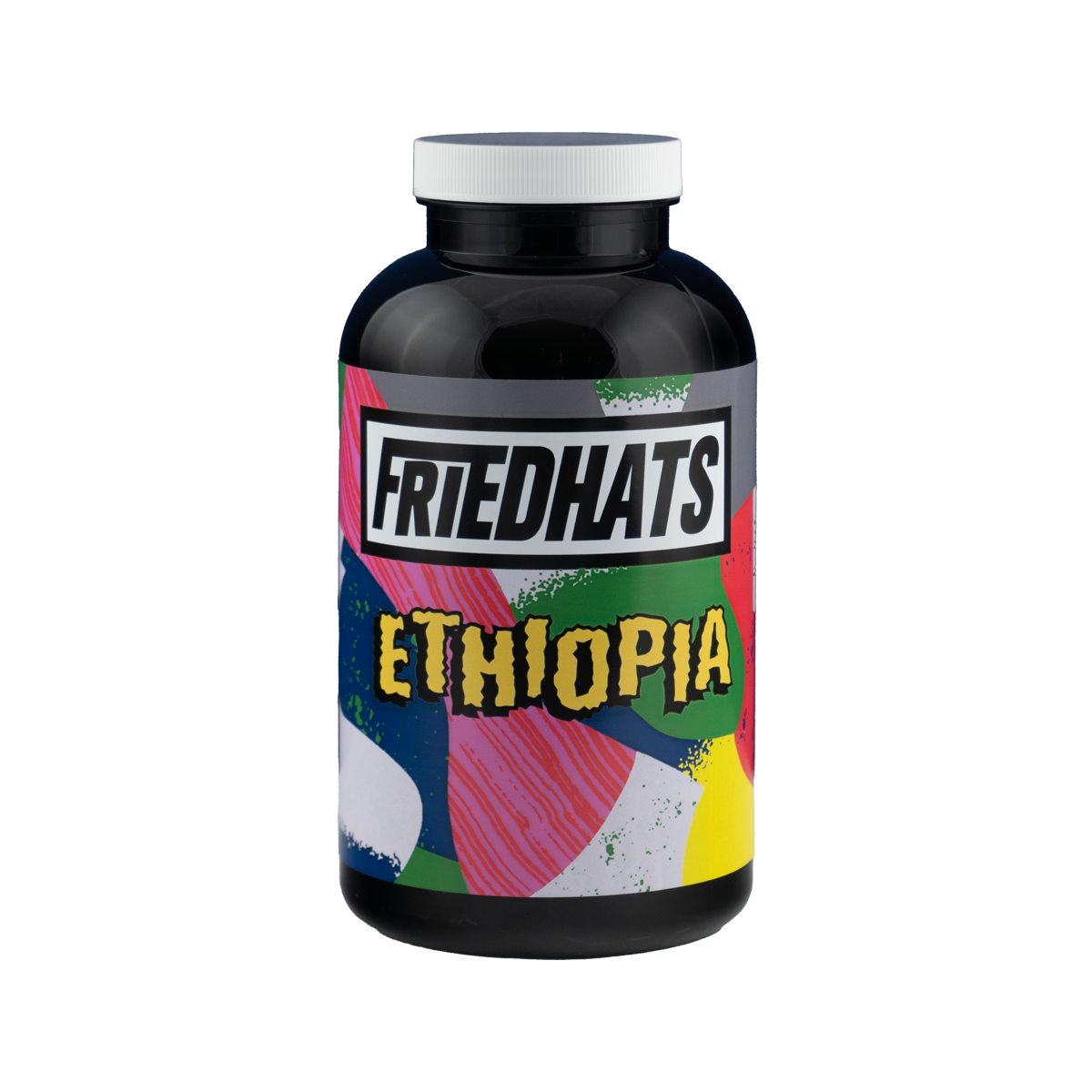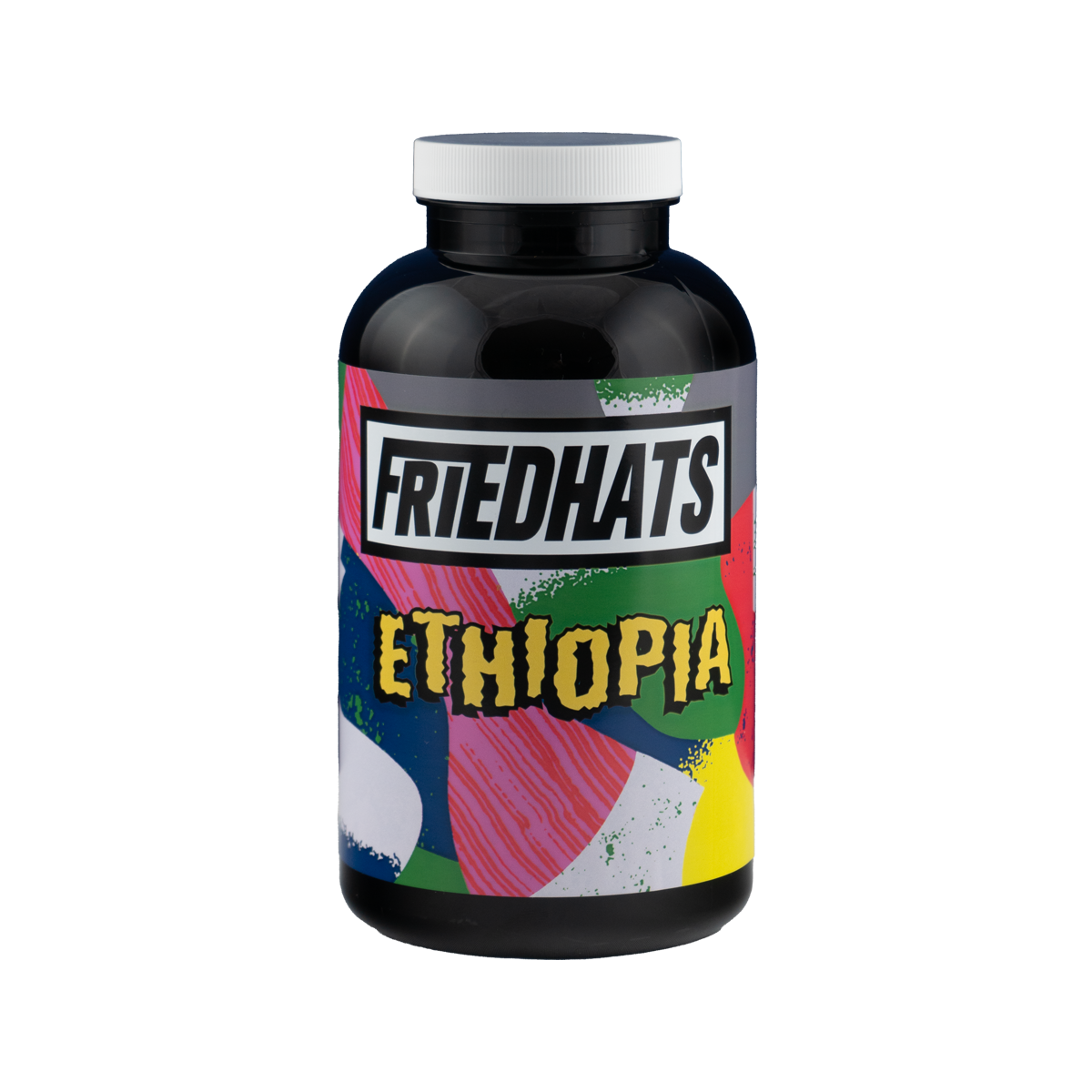FRIEDHATS COFFEE ROASTERS
FRIEDHATS - Halo Beriti | Ethiopia - Natural - Heirloom
FRIEDHATS - Halo Beriti | Ethiopia - Natural - Heirloom
 Origin: Ethiopia
Origin: Ethiopia
 Tasting Notes: Star fruit, Mixed berries and Floral
Tasting Notes: Star fruit, Mixed berries and Floral
 Process: Natural
Process: Natural
 Varieties: Heirloom
Varieties: Heirloom
 Producer: 750 smallholders | Halo Beriti
Producer: 750 smallholders | Halo Beriti
 Region: Gedeb, Yirgacheffe
Region: Gedeb, Yirgacheffe
 Elevation: 2100 - 2300 masl
Elevation: 2100 - 2300 masl
 Recommended Brew: Espresso and Filter
Recommended Brew: Espresso and Filter
 Roast Date:
Roast Date:
Couldn't load pickup availability
Friedhats Coffee Roasters is located in Amsterdam, Netherlands
From Friedhats
Sometimes we get so caught up in our world of coffee that we use terms without considering if people who work outside of coffee know what they mean. We’re trying to get better about that, or at least defining them well for you. So today we’re addressing the term “smallholders.” You see it a lot when talking about coffees, especially from Ethiopia or Kenya. But what are smallholders, and what does it mean when we say this coffee comes from 750 of them?
There isn’t a strict parameter to what makes a producer a smallholder, but in essence it’s someone growing a (relatively) small amount of coffee. In most markets coffee is a non-native cash crop, spread via colonialism to form large monocrop estates, producing thousands of kilos of coffee each year- growing, processing, and drying all on site. Alternatively, in Ethiopia, where coffee is native and has grown wild for centuries, it is more common to have portions of small or sustenance farms growing native trees. The scale of production on these farms can range from some scattered trees, to a garden, up to around a hectare of coffee. These are what we know as smallholders.
Understanding that this is the scope of the majority of producers in Ethiopia, it’s easy to understand why washing stations are instrumental to the production process. In such small quantities it doesn’t make much sense to undertake processing yourself, so farmers sell their lots to the washing station to finish the process on their behalf. Because so many farmers participate in this system, logistically it’s difficult to trace 20 kilos to this farm, and 200 kilos to another, and even less practical to sell these as tiny microlots.
Instead, coffee cherries will get sorted and graded, then processed together, then sold as lots by the washing station.
Typically these are compiled into “day lots,” which are precisely what they sound like- all the coffee sold to the washing station on a given day. This particular lot is what’s known as “special prep,” which entails a lot of manual sorting throughout the processing to filter out the best of the day lot and process it as a separate, higher quality lot. So ultimately what we have here is a filtered out portion of the best coffee from the Halo Beriti washing station on a given day, that this year produced coffee from a total of 750 local smallholders.
Share


